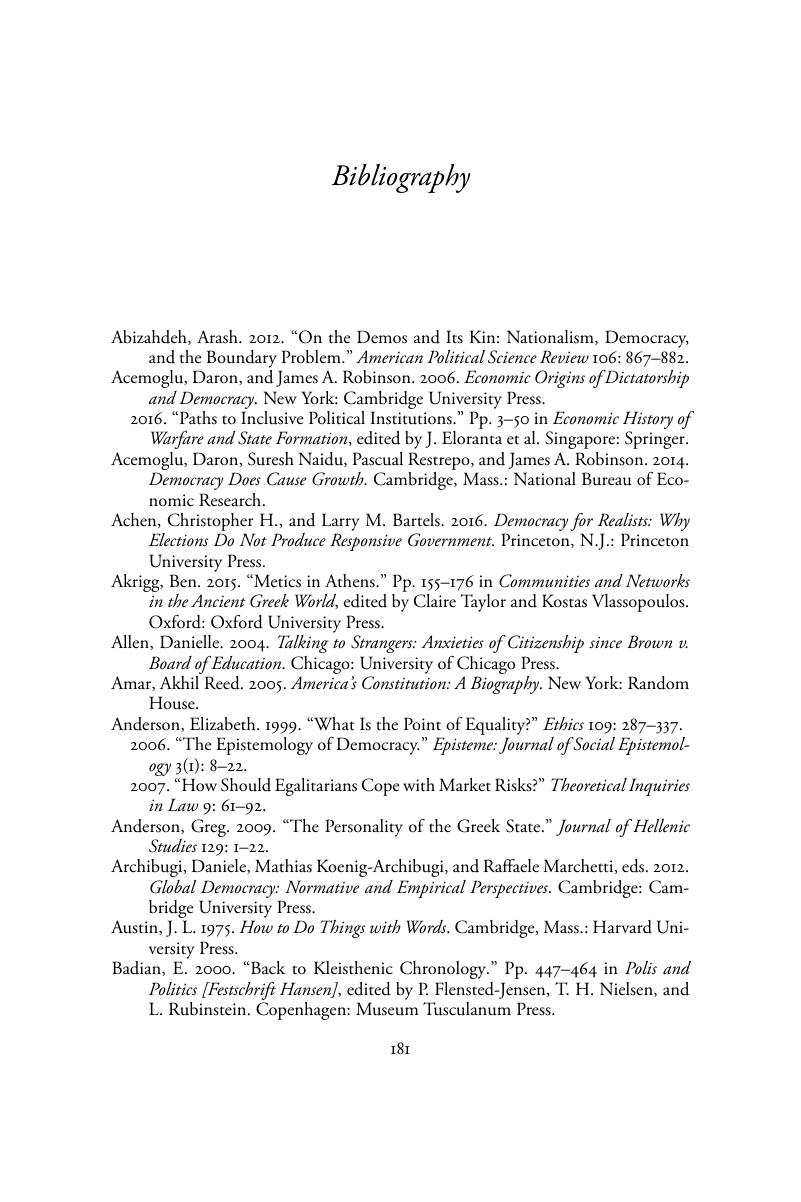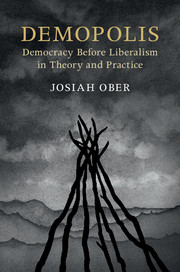Book contents
- Demopolis
- The Seeley Lectures
- Demopolis
- Copyright page
- Dedication
- Contents
- Figures
- Tables
- Preface: Democracy before Liberalism
- Acknowledgments
- Note on the Text
- Chapter 1 Basic Democracy
- Chapter 2 The Meaning of Democracy in Classical Athens
- Chapter 3 Founding Demopolis
- Chapter 4 Legitimacy and Civic Education
- Chapter 5 Human Capacities and Civic Participation
- Chapter 6 Civic Dignity and Other Necessary Conditions
- Chapter 7 Delegation and Expertise
- Chapter 8 A Theory of Democracy
- Epilogue Democracy after Liberalism
- Bibliography
- Index
- References
Bibliography
Published online by Cambridge University Press: 20 July 2017
- Demopolis
- The Seeley Lectures
- Demopolis
- Copyright page
- Dedication
- Contents
- Figures
- Tables
- Preface: Democracy before Liberalism
- Acknowledgments
- Note on the Text
- Chapter 1 Basic Democracy
- Chapter 2 The Meaning of Democracy in Classical Athens
- Chapter 3 Founding Demopolis
- Chapter 4 Legitimacy and Civic Education
- Chapter 5 Human Capacities and Civic Participation
- Chapter 6 Civic Dignity and Other Necessary Conditions
- Chapter 7 Delegation and Expertise
- Chapter 8 A Theory of Democracy
- Epilogue Democracy after Liberalism
- Bibliography
- Index
- References
Summary

- Type
- Chapter
- Information
- DemopolisDemocracy before Liberalism in Theory and Practice, pp. 181 - 196Publisher: Cambridge University PressPrint publication year: 2017



